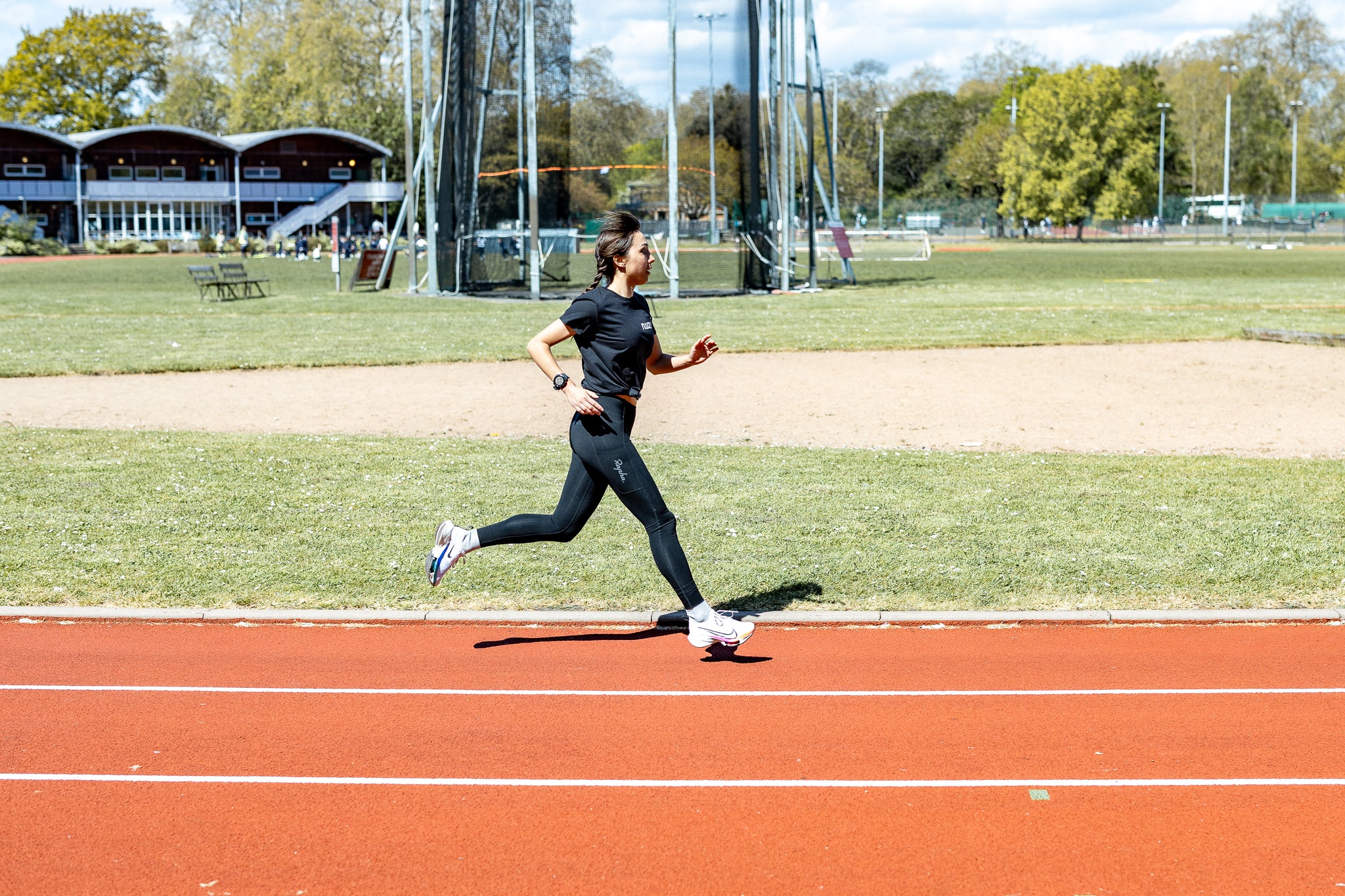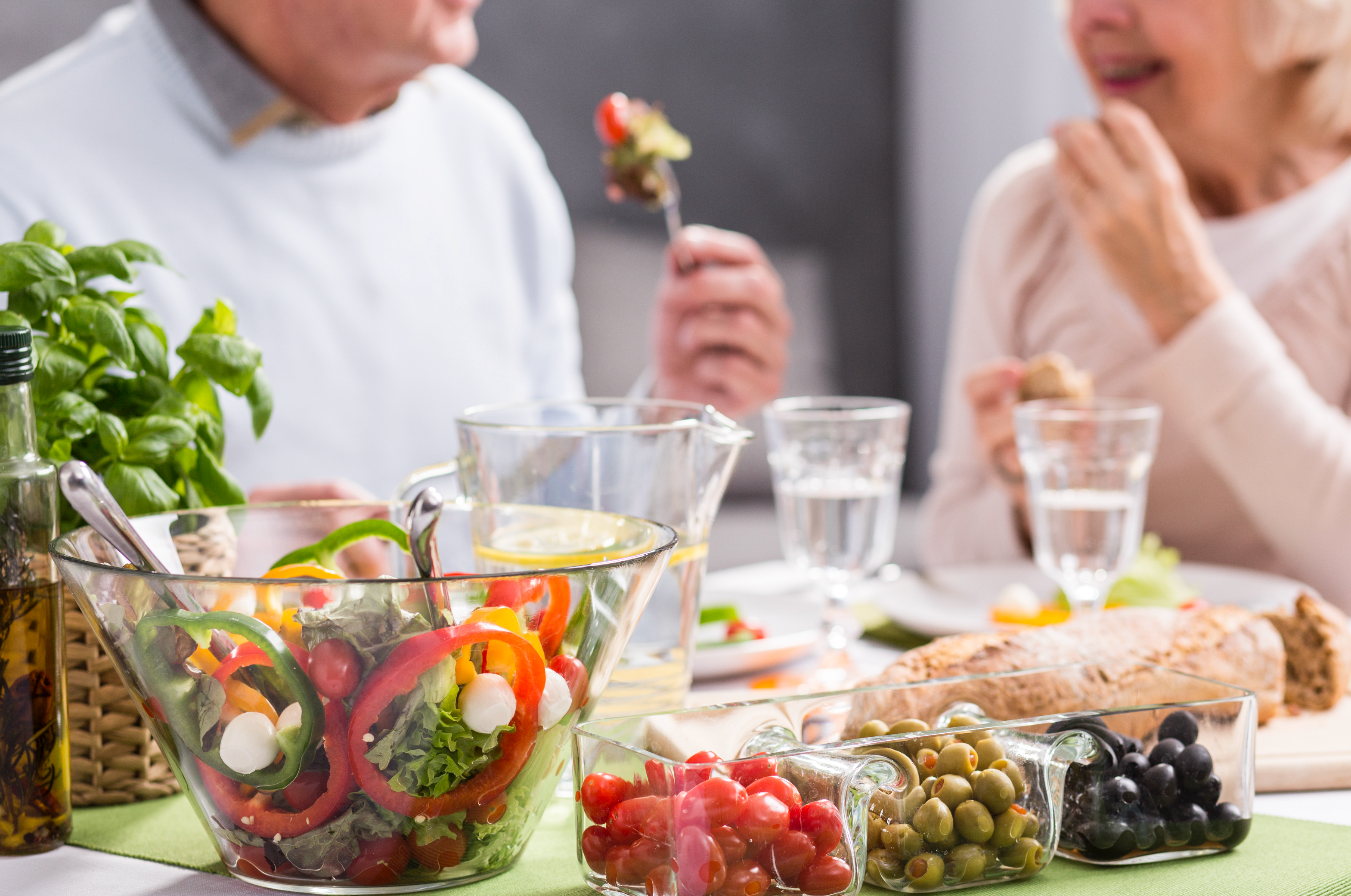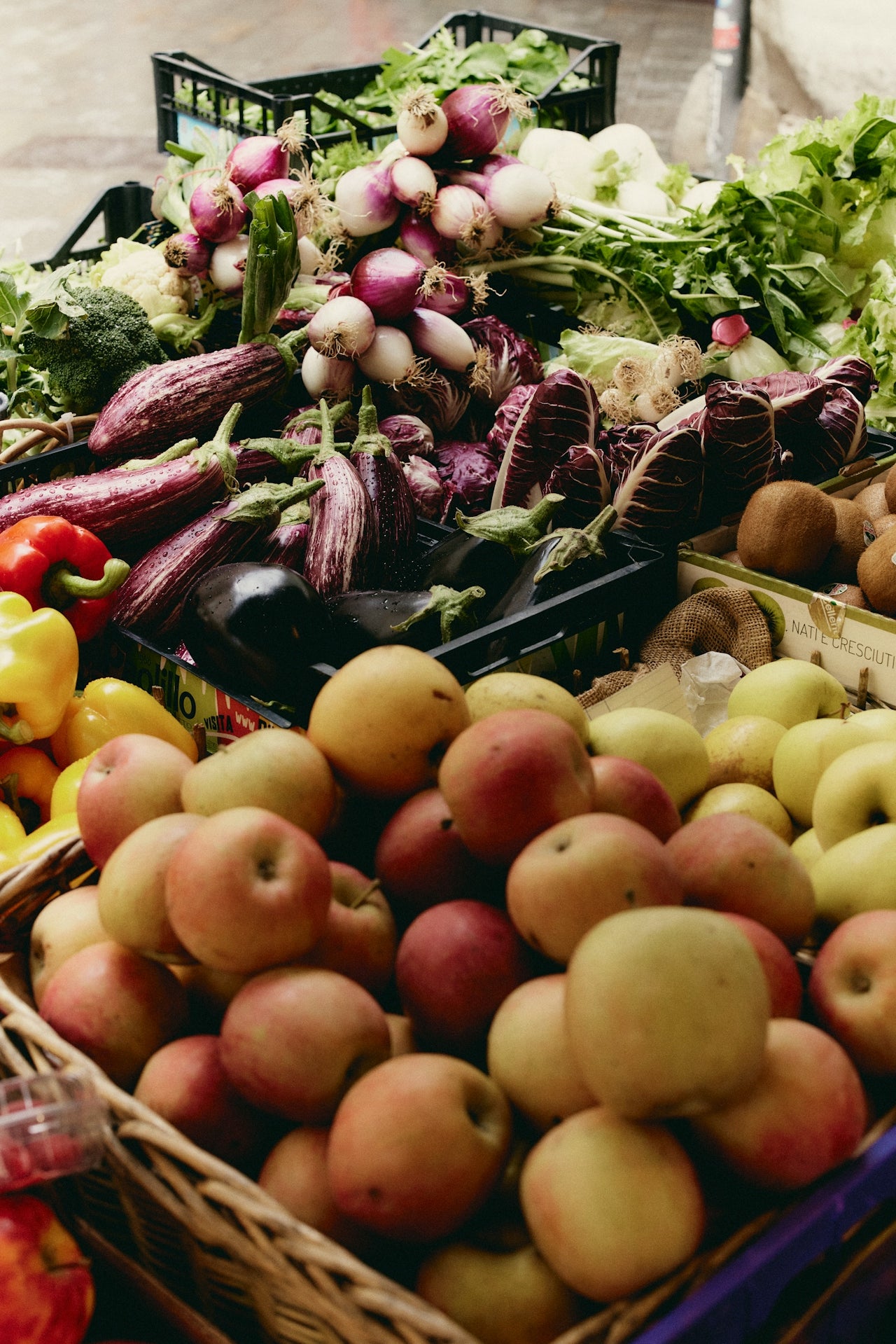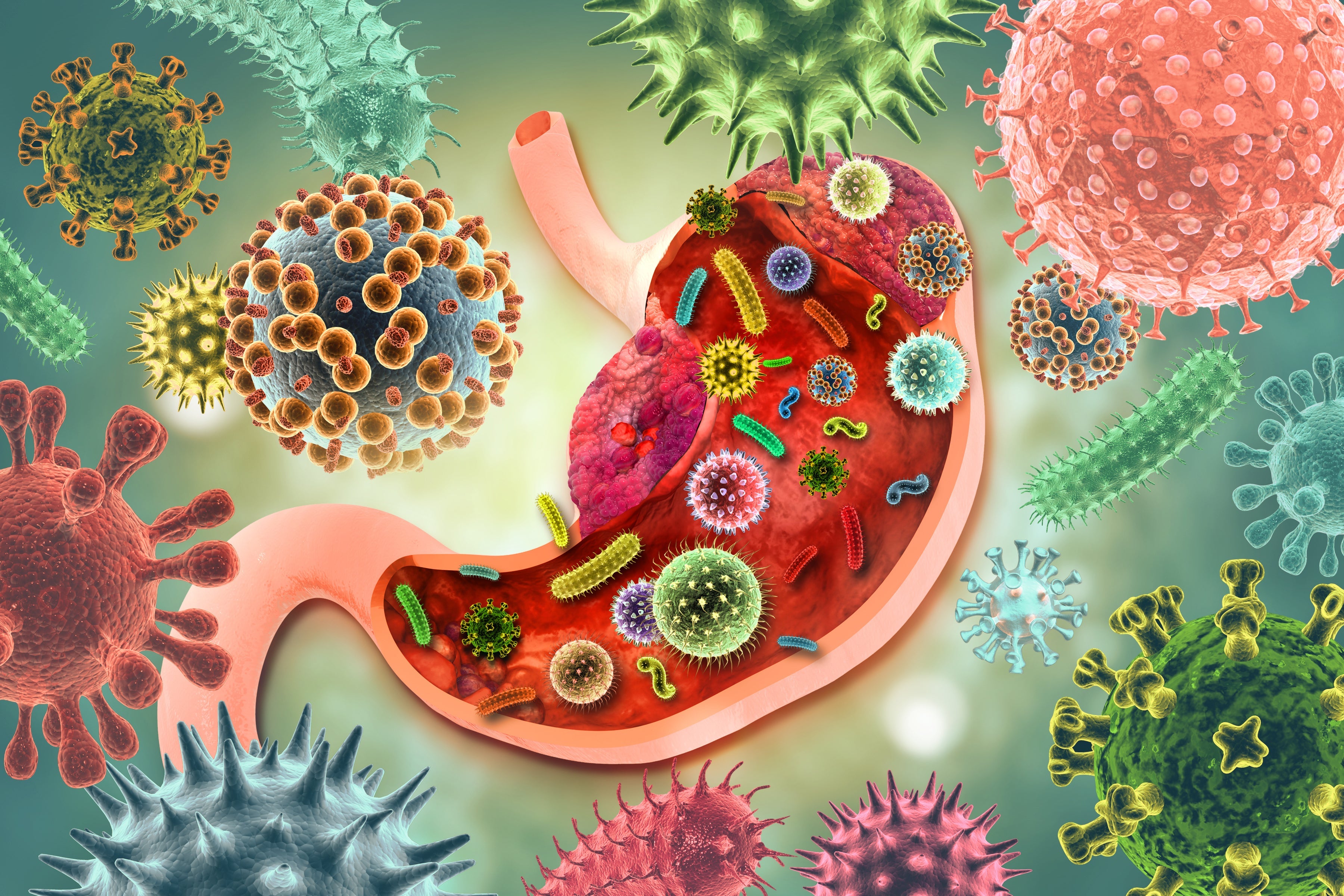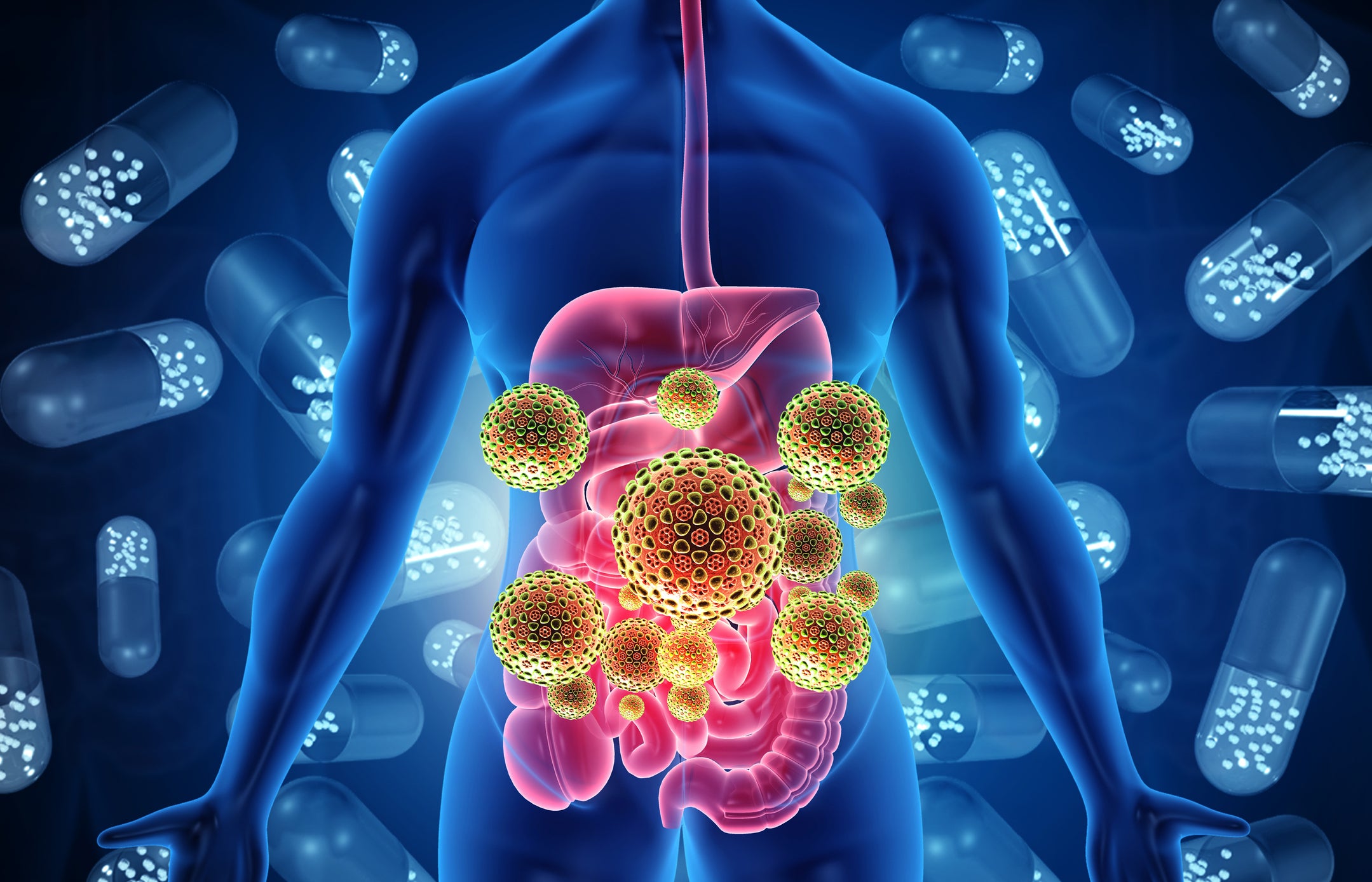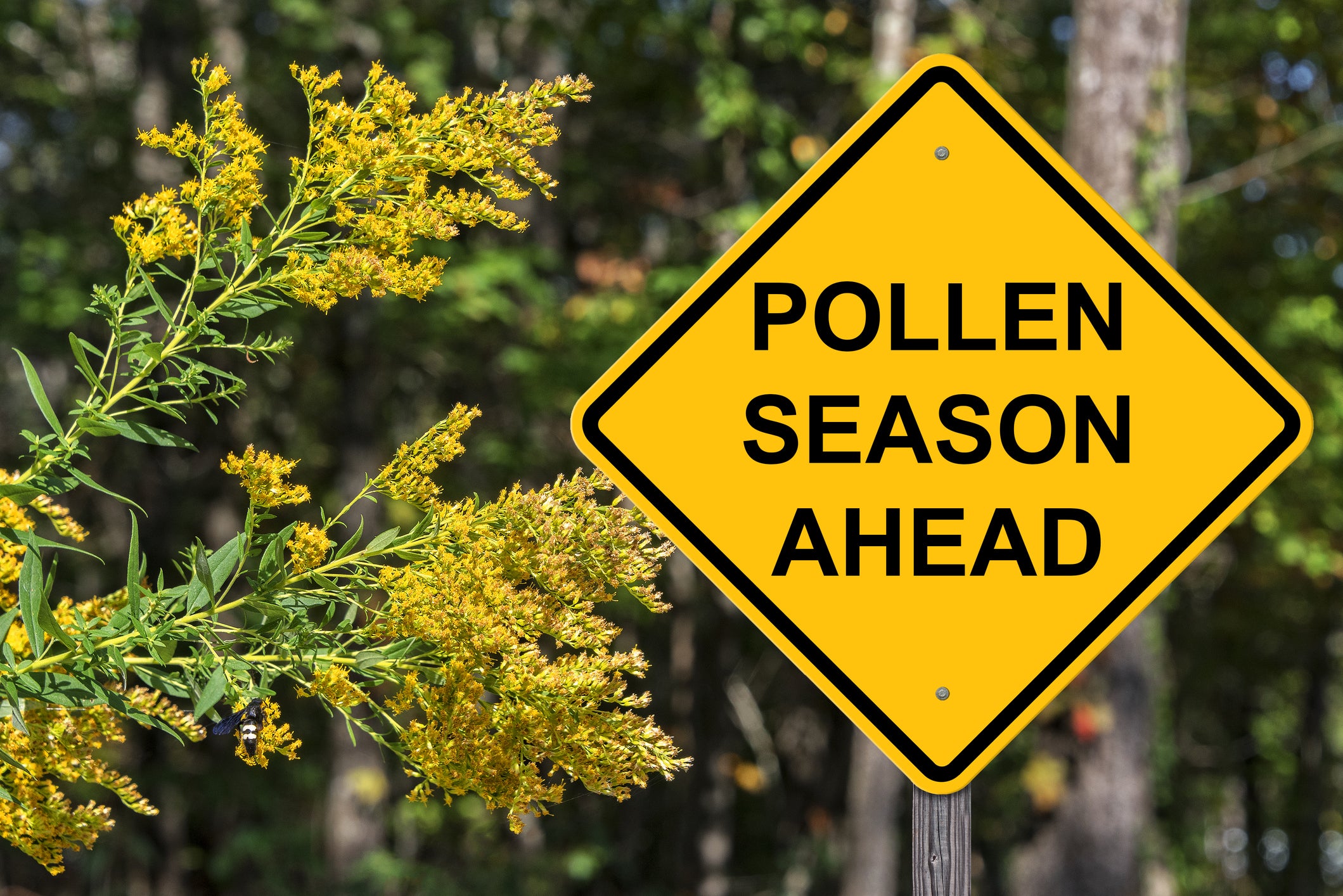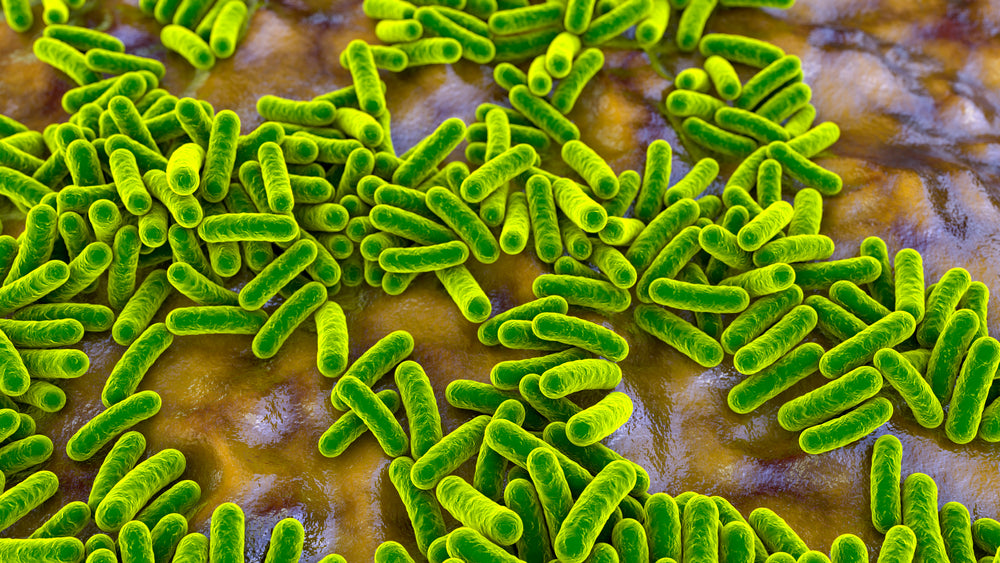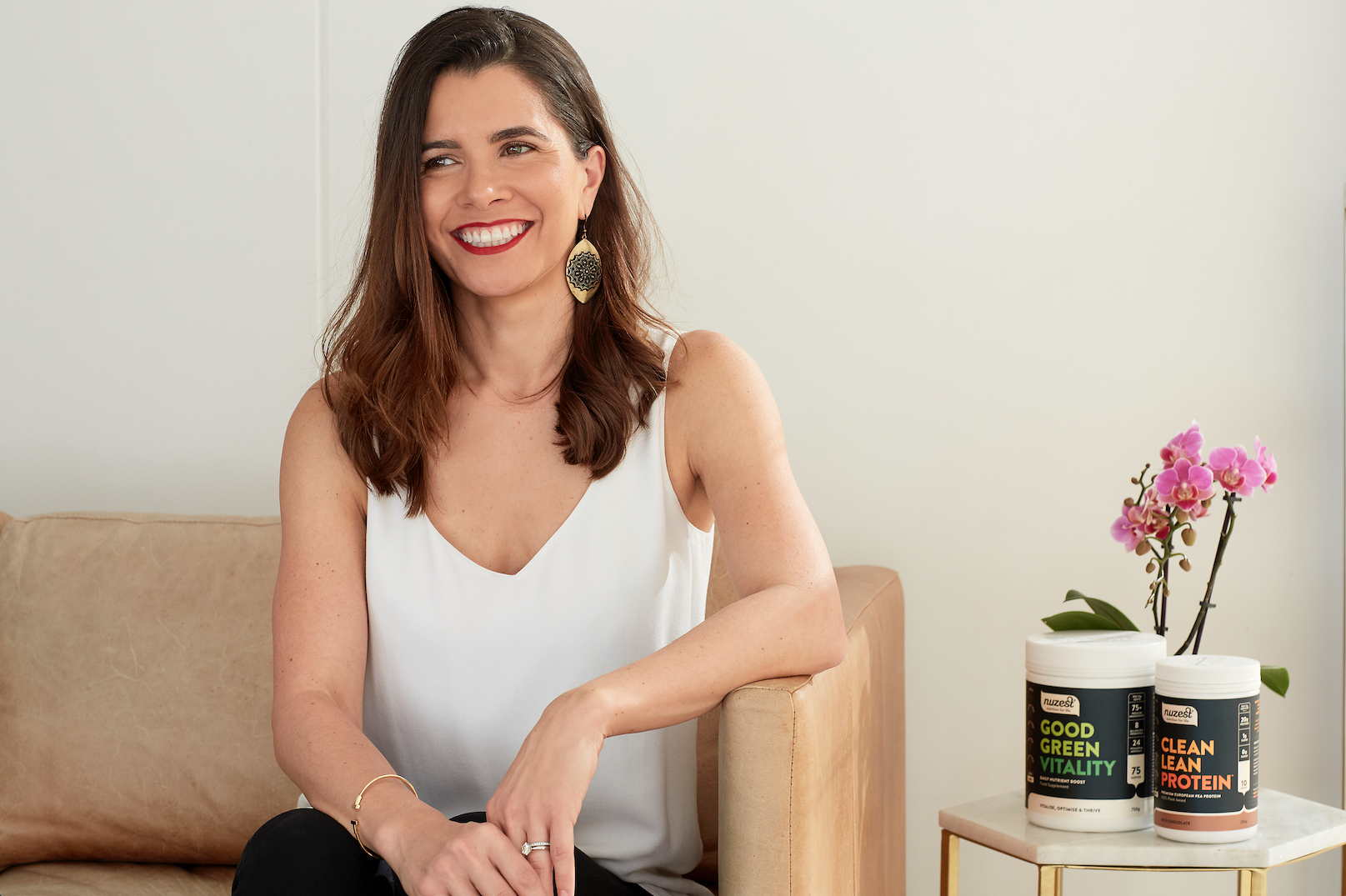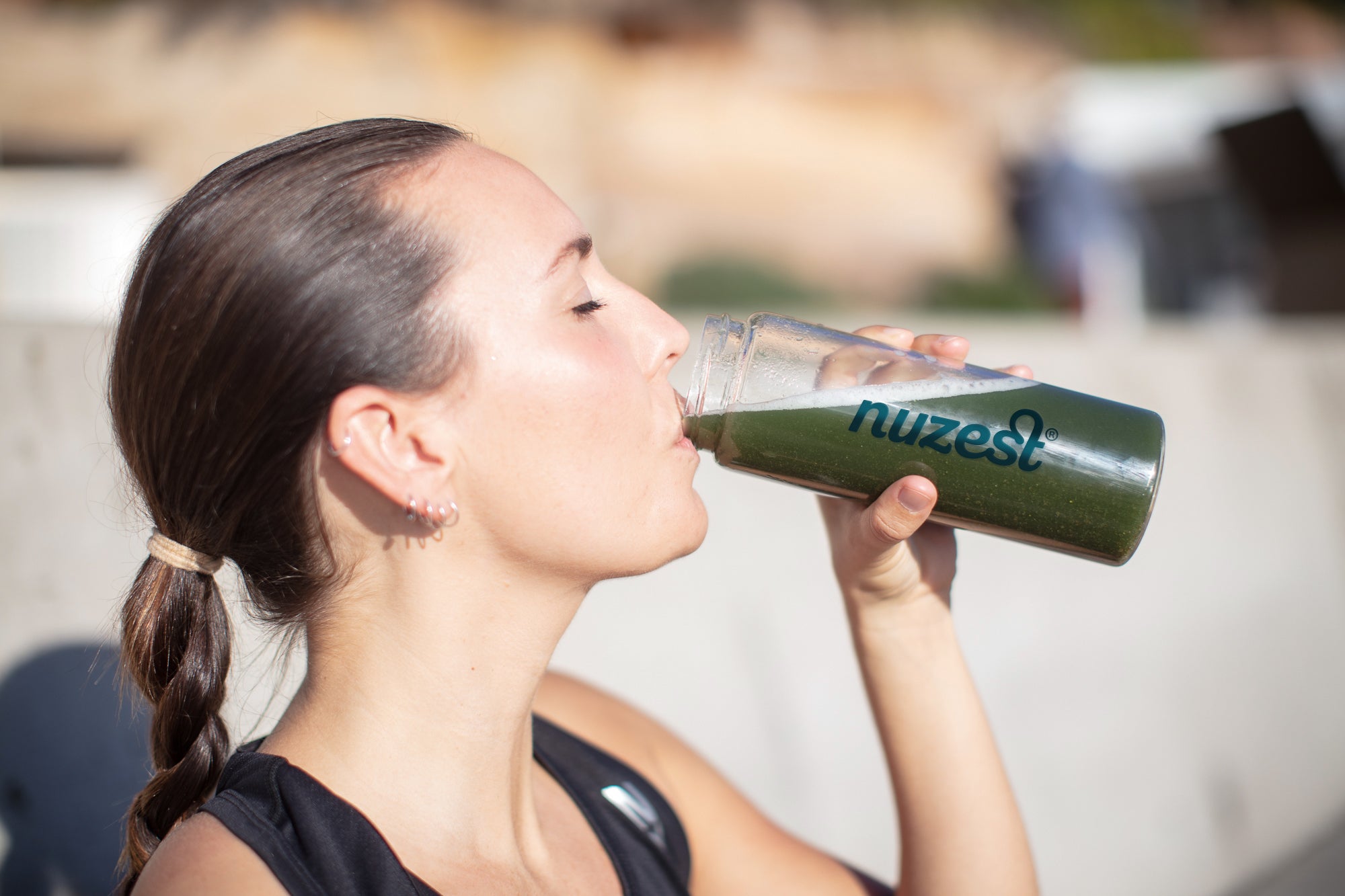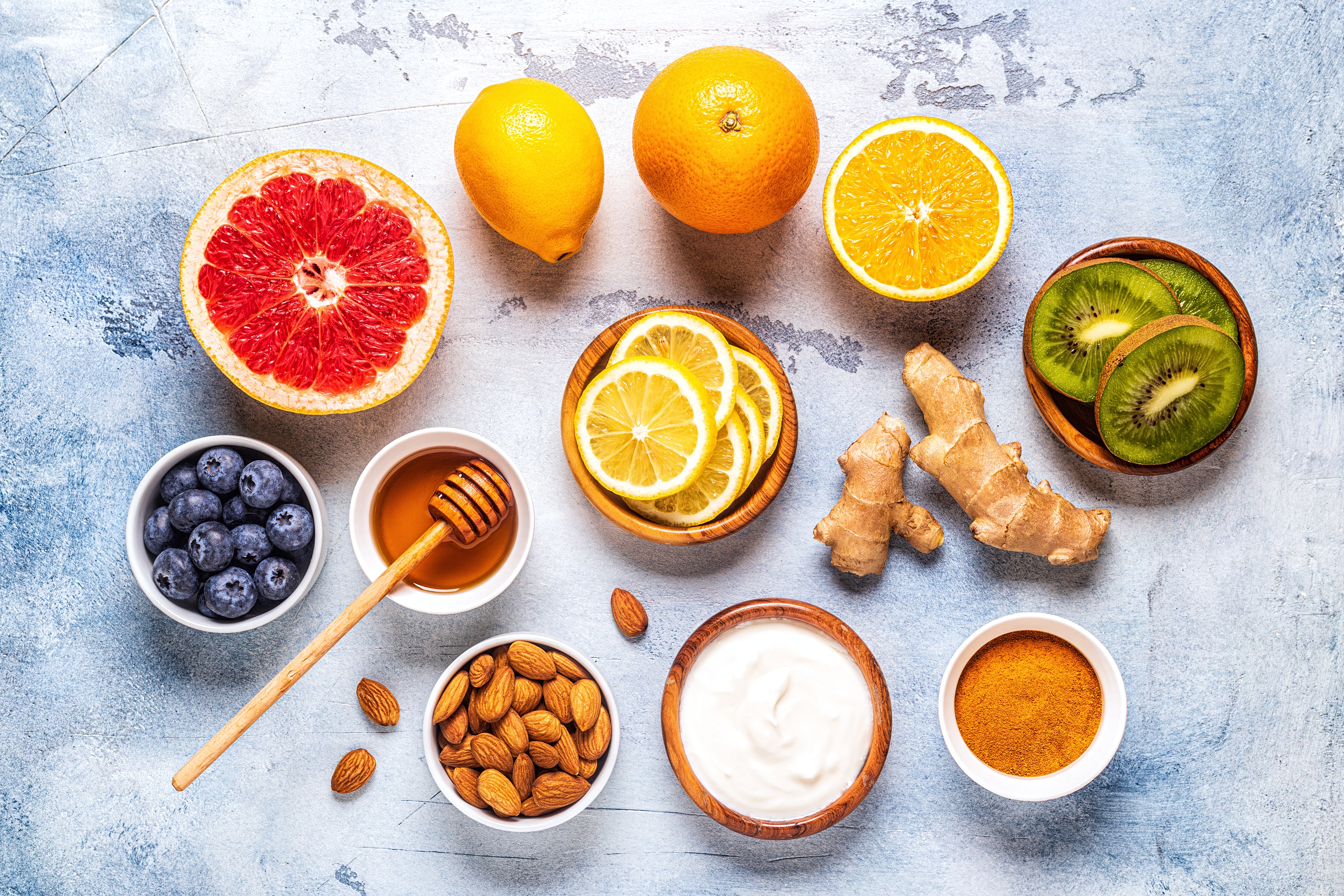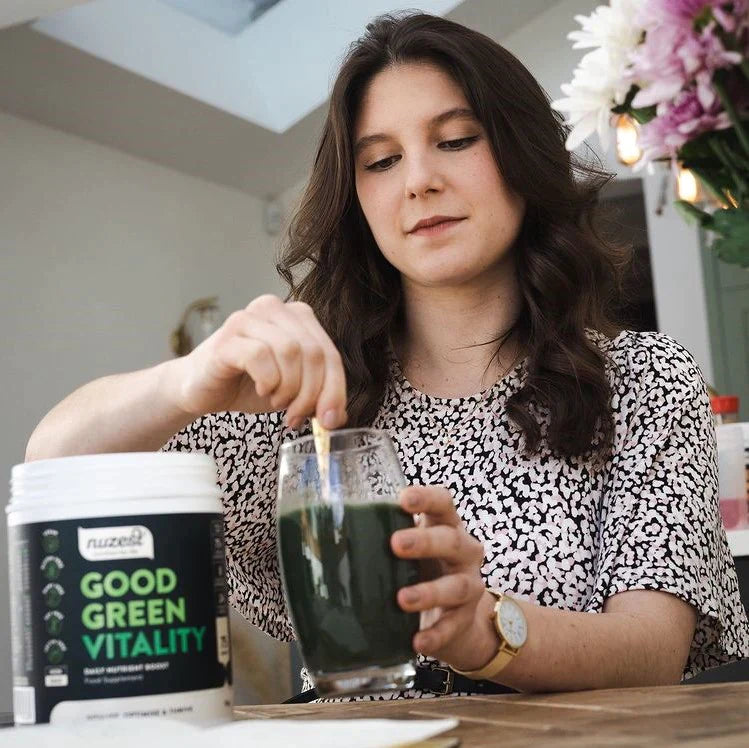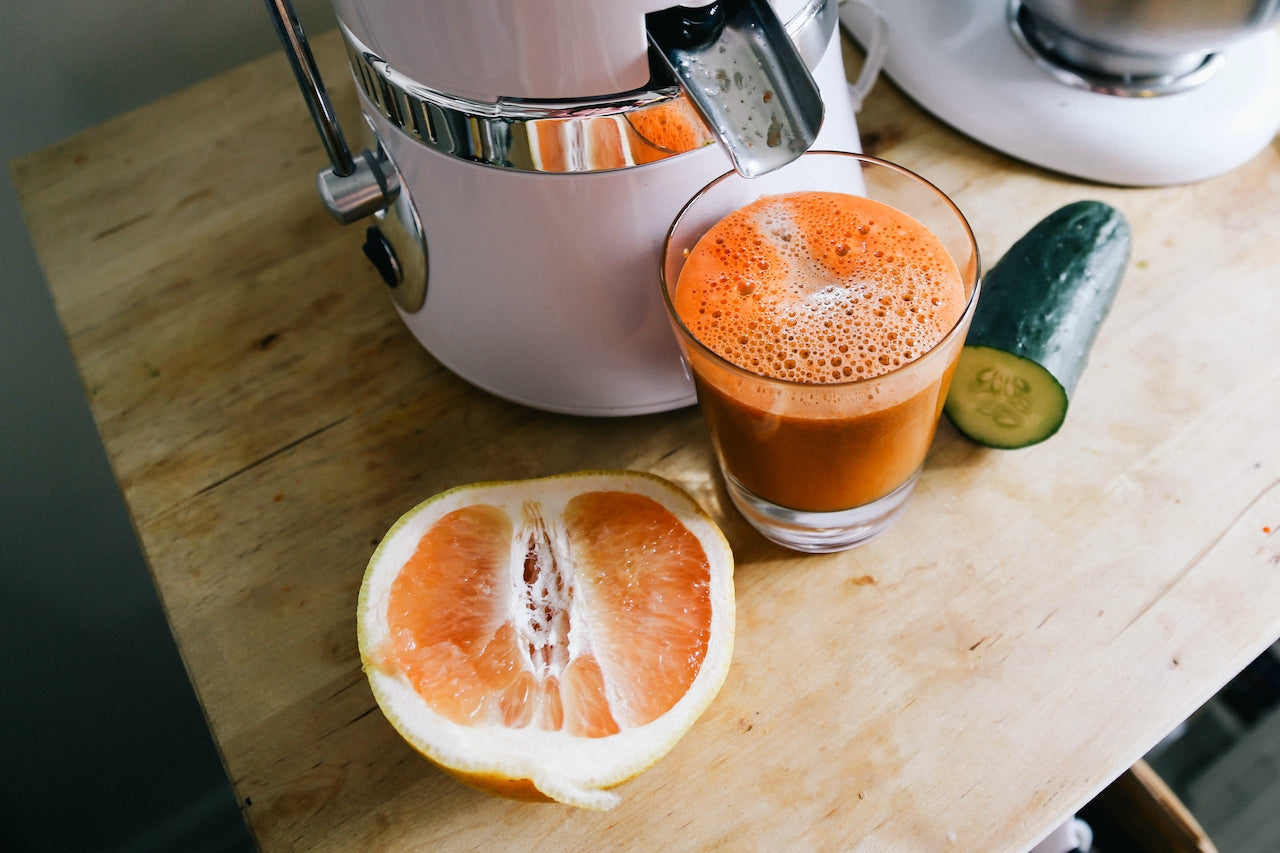Protein is a macronutrient that is essential for your health. It contains amino acids, which are often called the "building blocks" of your cells and tissues. When you consume protein, it gets broken down and used to support a number of different functions in your body, including muscle growth and immune health.1
But even though most people agree that protein is important in your diet, opinions differ about which source of protein is best.
Protein is naturally found in animal products like meat, poultry, eggs, fish, shellfish, and dairy. It's also found in certain plants like grains, nuts, seeds, and legumes, including beans and peas. Not all of these protein sources contain the same type and amount of amino acids, and they don't all affect your health (or the planet) in the same way.
Clean Lean Protein is a complete pea protein source made with high quality and sustainable ingredients. It's becoming a go-to source for many people turning toward a more plant-based diet because of health, environmental, or ethical concerns (and sometimes all three). But how does this pea protein compare to all other proteins on the market? Knowing the main differences and similarities can help you make the right choice for your needs.
Table of Contents
- Pea Protein vs Rice Protein
- Pea Protein vs Soy Protein
- Pea Protein vs Whey Protein
- Plant Protein vs Animal Protein
- Pea Protein vs Meat
- Pea Protein vs Egg Protein
- Pea Protein vs Chicken
- Pea Protein vs Bone Broth
- Pea Protein vs Cricket Protein
- Pea Protein vs Casein
- Pea Protein vs Hemp Protein
- Pea Protein vs Pumpkin Seed Protein
- Pea Protein vs Collagen
- Pea Protein vs Quinoa Protein

Pea Protein vs Rice Protein
Both peas and rice are staple food sources in diets from around the world. Research suggests that people started cultivating these crops as long as 11,000 and 9,600 years ago, respectively.2,3 Wild peas have an even longer track history, with archeological evidence suggesting that we've been eating them for at least 23,000 years!2
Pea protein vs rice protein are both highly palatable and naturally gluten-free. They're ideal for vegans and vegetarians, but can also provide quality protein for people who choose to eat meat, too.
Some people prefer rice protein because they are intolerant or allergic to legumes, a class of plants that includes peas, beans, lentils, soybeans, and peanuts. Fortunately, Clean Lean Protein by Nuzest is free of lectin, which is often the compound driving a legume allergy. In case you're wondering, lectin is a type of plant protein that binds to carbohydrates and reduces your body's ability to absorb nutrients.4 Rice, especially brown rice, contains many of the important essential amino acids your body needs. Unlike pea protein, however, rice protein is not a complete protein source. This actually explains why you'll often see manufacturers adding pea protein to rice protein powders. A lot of people also find the distinct taste of rice protein powder a bit off-putting and prefer the more neutral taste of pea protein powder.
Pea protein also contains slightly more protein per 100-calorie serving than rice protein does—22 grams vs 15 grams. This makes pea protein the more cost-effective choice for a lot of consumers.

Pea Protein vs Soy Protein
Both pea protein vs soy protein are both widely available on the market today and are popular vegan protein sources. Even people who aren't vegan often find these protein sources easy to incorporate into their diet, especially if they want to start consuming more plants.
Peas and soy are both part of the legume family. Soy is one of the main crops grown in the United States and is subsidized by the federal government, which makes it relatively inexpensive compared to other plant-based protein products.5Soy is also uniquely rich in phytonutrients called isoflavones.6 Isoflavones are types of plant estrogen that are similar to the hormone estrogen normally produced by the body. Interestingly, isoflavones are behind some of the controversy about soy. Some studies suggest that eating soy may increase the risk for certain health conditions because of the way isoflavones interact with estrogen receptors in the body. But other studies suggest the opposite.6 A lot of this conflicting data comes up because the studies involved are so different from each other, which makes comparisons difficult.
Overall, most health experts agree that soy is safe and in most cases beneficial. The Food and Drug Administration even supports the claim that soy may reduce the risk of coronary heart disease.7 Unlike almost all other plant-based protein sources out there, soy is considered a complete source of amino acids. Most pea protein brands can’t make that claim! Thankfully, Clean Lean Protein is made with premium golden peas from Europe and also offer you a 100% amino acid profile. If you're allergic to soy or if you're concerned about the controversies surrounding soy, pea protein is likely a better choice. But both can be a part of a balanced diet.

Pea Protein vs Whey Protein
The debate over pea protein vs whey protein is a hot one. Both of these protein sources are popular and easy to find on the market, and proponents offer plenty of benefits to consuming either one.
An obvious benefit of pea protein vs whey protein is that pea protein is vegan. Whey protein requires a bit more processing and is rendered from milk that comes from animals like cows and goats. Of course, this may not matter to you if you choose to eat meat and animal products, although you still may decide to incorporate pea protein into your diet because research shows that plant-based diets promote better health and longevity.8 A lot of people are turning away from whey protein because of concerns about sustainability, since the environmental impact of raising animals for protein is much greater than growing plants for protein.9 Plus, whey isn't a viable choice for people who are lactose-intolerant or simply have a hard time digesting whey.
Whey protein is often touted as a great post-workout protein. While it's definitely important to consume enough protein to support muscle repair and synthesis, you can still optimize these adaptations if you choose Clean Lean Protein, because it provides 100% of the amino acids your muscles need, including isoleucine, valine, arginine, and lysine.
Have you ever wondered how well you tolerate whey protein? Stepping away from whey and switching to pea protein for a while may help you gain insight into which one sits better with your body.
Plant Protein vs Animal Protein
Which one is better, plant protein vs animal protein? And is the answer really black and white?
Humans evolved eating both plants and animals. But it's not hard to imagine how modern day food practices are dramatically different from the hunting, gathering, and foraging lifestyle of our ancestors. The differences are especially obvious in conventional practices used to raise animals for consumption. Not only do "factory farm" animals experience high degrees of stress and inhumane living environments, but their products also tend to be less nutritious and even harmful to your health compared to humanely-raised animals.10,11
Then again, conventional practices used to grow crops aren't without their issues, either. Conventional farming can harm the environment due to effects like topsoil depletion and the use of toxic chemicals in pesticides and herbicides.12
Clearly, both conventional agriculture and conventional animal-rearing have serious implications for both health of human humans and the planet. In an ideal world, we would all be able to choose local, organic, wild-caught, grass-fed, and sustainably harvested foods—whether vegan, vegetarian, or omnivorous.
The good news is that by consuming a diverse range of plants, it's possible to get all the protein and amino acids you need without being reliant on animal products. This matters to a lot of consumers, because research suggests animal-rearing for food production has a greater negative impact on the planet.9
Eating more natural plant foods, including sustainable and premium products like Clean Lean Protein, can also help you live longer and healthier.8Plus, grass-fed and organic animal protein is prohibitively expensive for many people. Organic beef, for instance, is 40% more expensive than non-organic beef on average.13 Meanwhile, the cost of sustainable and high quality pea protein can be much more affordable and is a complete protein source.
Are you a meat eater, vegetarian, or vegan? What's your take on the plant protein vs animal protein discussion?
Pea Protein vs Meat
People tend to stick to their guns when it comes to meat-eating (no pun intended). But these days, more and more researchers, environmentalists, and other folks concerned with human and planet health are calling for a move toward more plant-based diets.
Rendering pea protein requires one tenth of the land needed for rendering meat.9 And as the Washington Post reports, meat eaters consistently have a much larger carbon footprint than people who maintain a largely plant-based diet.14
Of course, as consumers we aren’t making choices based on environmental impact alone. Our health must come into the equation, too.
To this point, pea protein still comes out ahead of meat for many people. To understand why, we can simply start at calorie content. There are 90 calories per serving of Nuzest’s golden pea protein. Compare this to 230 calories in the recommended 3 ounce serving size of steak—and let’s be honest, what restaurant or at-home cook ever puts only 3 ounces of steak on a plate?
There’s another relatively unknown reason why substituting meat with pea protein is the more health-conscious choice: meat and other animal products contain high amounts of an amino acid called leucine. This amino acid is thought to be a major driver behind aging and aging-related illnesses—including cancer and premature death—by activating an enzymatic process in the body called mTOR.15
As the research suggests, swapping out meat for plant-based proteins like pea protein could be a major step in the right direction as far as longevity and disease prevention goes.
Where do you stand in the pea protein vs meat debate?

Pea Protein vs Egg Protein
As consumers, our purchasing power comes with a lot of responsibility. The foods we decide to buy and feed to our families make a strong vote one way or the other about which type of industries we want to support.
It’s a good thing to keep in mind when trying to make a choice between pea protein vs eggs, for instance.
Consider the conventional egg industry: chickens are housed in cramped, sunless, deplorable conditions and fed junk grains that don’t offer them the requisite nutrients they need. It’s why farmers have to add supplements to their diets and fill the chickens with antibiotics.
Not only is this ethically questionable, but it’s nutritionally questionable, too. Research shows that pasture-raised eggs contain significantly more Vitamin A, E, and omega-3 fatty acids compared to conventional eggs.16 Pasture-raised eggs, while the better egg choice nutritionally and ethically, also happen to cost $5 or more per dozen. This leaves plenty of budget-aware consumer with the proverbial egg on their face.
What’s the nutritional score when comparing pea protein to egg? Nuzest
Clean Lean Protein contains 18-21 grams of high quality pea protein per serving, compared to just 6 grams of protein per egg. Clean Lean also contains just 1 gram of fat per serving compared to the 5 grams found inside every eggshell. For many people, this makes pea protein a much more cost-effective and health-effective choice compared to eggs, even if the latter comes from free-range chickens. Don't forget that kids need protein, too—but eggs often aren’t the right choice for young bodies. According to the American College of Allergy, Asthma, and Immunology, the common egg allergy affects as many as two percent of children, and a third of these children won’t grow out of it.17Pea Protein vs Chicken
The World Health Organization informs us that diets heavy in red meat has been associated with an increased risk for chronic illnesses like cancer.18 Many people respond to this data by replacing steaks with grilled chicken breasts.
But is this the right move for you?
The thing is, chicken isn’t a suitable protein source for a lot of people. Chicken meat contains a relatively high amount of an amino acid called leucine, which has been shown to trigger an enzymatic process in the body called mTOR. mTOR is linked with accelerated aging and an increased risk for cancer.19
And let’s face it: most of the chicken that’s available in our grocery stores comes from animals who live stressful and deplorable lives in cramped coops, only to be filled with antibiotics and hormones before they’re slaughtered. What’s more, these compensatory chemicals appear to have consequences. As just one example, research from a peer-reviewed journal indicates that commercial chicken meat may contribute to hormone-related illnesses in humans, including polycystic ovary syndrome.20
The good news is that research also tells us that eating more plants including fruits, vegetables, and legumes, is health-protective.21 So even if you don’t want to completely give up on eating chicken—especially the kind sourced from free-range, pastured, grass-fed fowl—you can still get the protein and nutrients you need from a diverse plant-based diet.
Want to hedge your bets even more? Add high quality pea protein into the mix. Clean Lean Protein is a good source of branched chain amino acids (BCAAs) that have been shown to promote muscle gain, satiety, and improved blood pressure.22
With accolades like these, it’s no wonder that more folks are realizing that they don’t “need” chicken to be lean, strong, and healthy.
Pea Protein vs Bone Broth
Are you looking to switch up your protein intake? Have you come across bone broth in your research? It’s not surprising if you have.
Bone broth—rendered from a simmer of animal bones, connective tissues, vegetables, and other ingredients—has exploded in popularity within the past few years. These days, it’s possible to find relatively high quality bone broth products sourced from grass-fed and more ethically-raised animals.
The cost, however, is a major limiting factor for a lot of health-conscious people. One 16-ounce container of a popular bone broth (with two servings per container) costs around $8. If we’re doing our math right, that is $4 per serving—with one serving containing about 7 grams of protein.
Compare this to the 5.5 lb bag of Clean Lean Protein. With 100 servings per container, your per serving cost plummets to $1.69. Meanwhile, each serving contains around 2-3 times more protein found in one serving of bone broth, making it a great cost-effective alternative.
Cost isn’t the only factor to consider when choosing between pea protein vs bone broth. A serving of pea protein has been shown to promote a healthy level of satiety, which may curb food cravings and overeating.23,24 Comparatively, sipping on a hot cup of bone broth may not fill you up quite as well, which can set you up for excess calorie consumption.
We’d be remiss to leave out a major area of broth-related concern found in the literature, which is an issue generally overlooked by the rapidly expanding bone broth industry—projected to be worth over $2.8 billion by 2024. 25
The concern is lead contamination, which appears even to affect bone broths marketed as higher quality.
In a 2013 study published in a peer-reviewed journal, researchers found that bone broth made from organic, free-range chicken bones had 10 times more lead in it compared to the water used prior to rendering.26
For many consumers, data like this makes bone broth appear even more costly. Exposure to lead has been linked with many health problems in adults and humans, including an increased risk for hypertension, attention deficit hyperactivity disorder (ADHD), learning impairments, mood and behavior problems, and impaired fetal development.27
What do you think of the bone broth trend?

Pea Protein vs Cricket Protein
In a modern world rife with concerns about the environment, sustainability, health, and ethics, many people are beginning to look for alternatives to major protein sources like red meat and chicken. In their efforts, some consumers have stumbled upon cricket protein. Yes, cricket—as in the chirping, jumping bug.
Perhaps eating bugs isn’t as wild as it sounds. After all, people have been eating insects for tens of thousands of years, and they remain a major part of the staple diet for many cultures around the world today.28
Ounce for ounce, crickets also appear to be a hefty source of complete protein. Some research suggests that insects are nearly 70% protein by dry weight, compared to just 31% and 29% for chicken and sirloin steak, respectively.29,30 Plus, crickets can reproduce at a much faster rate than the larger animals we typically eat and require significantly less acreage for production.30
With this in mind, cricket protein may be a good option for people who aren’t interested in going full vegan but equally can’t stomach the large carbon footprint that their large animal meat consumption makes on the planet.31
Of course, if you’re not ready to eat bugs either, consider pea protein vs. cricket protein: pea protein is an excellent sustainable and healthy option. Clean Lean Protein is made with easy to digest, lectin-free European Golden Peas that are 100% vegan-friendly. Per serving, Clean Lean Protein costs as little as $1.69 and boasts as much as 18 to 21 grams of protein.
Pea Protein vs Casein
Is casein a good protein choice for you? How does this type of protein compare to pea protein? Like most nutritional decisions, your answers to these questions are based on a lot of individual factors, including your values, goals, and health.
First thing's first: if you’re vegan or looking to vote with your dollars by not purchasing animal products, then casein—the main type of protein found in dairy products—won’t fit the bill.
You may also want to consider the way the human body metabolizes casein. Compared to other animal-based proteins, casein digests much more slowly.32 What this means is that the amino acids from casein are released for a more prolonged amount of time into the bloodstream.
Some argue that this slow-acting release results in better protein synthesis, especially when casein is consumed at night. Because it’s so slow-acting, however, casein isn’t an ideal protein to have right after you finish a workout—a time when your body needs fast access to protein in order to support muscle repair.33
As part of a diverse plant-heavy diet, pea protein provides a good source of BCAAs, which are a must for building lean body mass.33And because Clean Lean Protein is lectin-free and highly digestible, the product is a great source of fast-acting and accessible protein during the important post-workout window when your body needs to replenish itself.
By the way, if you’re allergic to dairy (but not legumes), pea protein is probably the better choice when comparing pea protein vs casein. This is because even though casein is free of lactose (an allergenic sugar in milk), it still can lead to unpleasant side effects in some people with a dairy allergy.34
Pea Protein vs Hemp Protein
Thanks to greater awareness about research supporting the dangers of diets high in animal products (especially processed meats), more and more consumers are turning to vegan sources of protein, including pea and hemp. Both pea protein and hemp protein can be healthy additions to a plant-based diet, and understanding some of the differences can help you decide which one is best for you.
Hemp protein is derived from seeds of the cannabis plant. Unlike the cannabis plant marijuana, hemp doesn't make you high, since it contains just trace amounts of the psychoactive compound tetrahydrocannabinol (THC).35
There’s better news in what hemp does contain a lot of: good-for-you compounds including fiber, zinc, iron, magnesium, and the plant-form of omega-3 fatty acid called alpha-linolenic acid (ALA). Compared to pea protein, hemp protein also appears to contain more of the amino acid methionine, which is important for various cell functions and liver health.36,37
On the other hand, hemp protein is low in the essential amino acid lysine, which does everything from helping the body absorb other nutrients to supporting immune function.38
Conversely, pea protein is a rich plant-based source of lysine, and also contains nearly double the amount of protein per serving compared to hemp.39
In the case of pea protein vs hemp protein, it may not be a matter of “either or” but “and.” Clean Lean Protein is a complete protein source on its own. But eating a diverse range of plant-based proteins, including hemp protein powder, can help you get all the amino acids you need for optimal health and function, along with sufficient amounts of vitamins, minerals, and fiber.40
Pea Protein vs Pumpkin Seed Protein
It doesn’t matter if you’re a card-carrying member of the Meat Eaters Club or a committed vegan with decades of animal-free eating under your belt. Research indicates that eating more plants—including fruits, vegetables, legumes, nuts, and seeds—is good for your health and can reduce your risk of illness, including cancer and heart disease.41
For people gravitating toward a plant-based diet, getting adequate levels of protein is a major area of concern. To ensure you’re getting enough essential amino acids to support optimal health, lean body mass, and proper cell function, it’s best to source your protein from a variety of plants.
Consider the comparison of pumpkin seed protein vs pea protein. They both have a similar amount of protein per serving, although pea protein contains a greater amount of the amino acid lysine compared to pumpkin seed protein.42
But pumpkin seeds aren’t without their merit—or without their place in a healthy plant-based diet. For one thing, they provide high amounts of important minerals including magnesium and zinc.42,43 They also contain a healthy dose of Vitamin E, an important antioxidant.44,45
Further research done in animal models also suggest that pumpkin seed protein and pumpkin seed oil offer heart-healthy benefits, including lowered blood pressure and reduced levels of “bad” LDL cholesterol.42,46
If you’re allergic to peas and other legumes, pumpkin seed protein could be an important stand-in for your plant-based diet. Fortunately, Clean Lean Protein is made with high quality premium European Golden Peas and is free of lectin—the key protein underlying legume intolerance. Pass the peas, please!
Pea Protein vs Collagen
Decades of research have found correlations between red meat consumption and a variety of serious health concerns, including cancer, stroke, and early death.47 Perhaps you’ve heard of this research and consequently are now looking for alternative protein sources.
Trending on the market these days is collagen protein, which is the most abundant type of protein found within the animal kingdom.48 Supplements are derived from connective tissues and bones of animals—so, unlike pea protein, it’s not a good option for vegans or vegetarians.
There is at least some research showing potential benefits of collagen, including improved gut health, skin health, and muscle development.49,50,51,52 However, the general consensus in the nutritional science field right now says there needs to be a lot more research done before we can come to more definitive conclusions about collagen’s health benefits and risks.
Collagen also come with some problems, the possibility of unpleasant side effects including stomach upset, heartburn, and other signs of indigestion.51 Comparatively, Clean Lean Protein is made with premium European peas that are easily digested by the body and free of the protein lectin that could otherwise lead to a legume intolerance.
From a more practical standpoint, pea protein and other plant proteins have less of an environmental impact compared to animal-based proteins, including collagen.53 Consumers concerned about the effect of their purchases on land, energy, and water resources may well gravitate toward a more plant-based diet, which has been shown to have a lower carbon footprint.9,53

Pea Protein vs Quinoa Protein
Anyone familiar with the plant-based diet revolution has likely come across pea protein and quinoa protein before. While both can be a healthy addition to a balanced diet, they do have some important differences. Knowing these differences can help decide which is a better option for you.
Both peas and quinoa are naturally free of gluten, which is a protein found in grains like wheat, barley, and rye. Gluten causes serious health problems for people with an autoimmune disorder known as Celiac disease, and still problematic issues with people who don’t have Celiac but are gluten-sensitive—which has been estimated by experts to affect as much as 7% of the US population.54
Quinoa, which is often referred to as a grain but is technically a seed, is considered a great source of nutrients, including fatty acids, antioxidants, fiber, and vitamins and minerals like iron, copper, magnesium, folate, phosphorus, and vitamin B12, B6, and E.55,56 In its powdered form, quinoa protein is a staple in many vegan protein brands on the market, although due to processing it may lose some of its other nutrients of value.
Quinoa protein is of particular interest to the plant-based diet revolution because it contains all nine essential amino acids, including lysine.57,58 This makes it a complete protein source. That said, Clean Lean Protein is a complete protein source, too.
For anyone eating less meat and consuming more plants, it’s important to make sure you’re covering all your bases as far as amino acid profile goes. Including multiple kinds of plants in your daily diet, including quinoa protein and pea protein, can help make sure you’re properly nourished.
Getting enough high quality protein in your diet is essential for supporting optimal health and lean body mass. This macronutrient does everything from helping you build strong muscles to strengthening your immune system.
But not all protein is created equal. Knowing the differences between pea protein vs all other types of protein—including how it affects your body, your budget, and the environment—can help you feel more confident in your purchasing decisions. The key is to find a range of protein sources that fit your lifestyle, health needs, goals, and beliefs.
What is the best protein powder?
There are many benefits of lot of different protein powders, but we like to look at a few factors: sustainability, overall benefits, and taste. Peas are classified as a sustainable crop as they use less land and water than alternatives and add vital nutrients like nitrogen back into the soil. Since this is very important in today's world, the sustainability factors of a pea protein powders make it stand out among the rest. Pea protein provides a ton of benefits and tastes great, too! The versatility of pea protein powders like Clean Lean Protein are among the top contenders! Don't just take our word for it. Check out these testimonials about why people love our plant-based products!
Where do you go from here?
Decide which protein is right for you and integrate it into your daily routine. If you want to take it a step further and follow a plant-based diet or vegan diet, you can join in with us in our 7-day vegan meal plan. Join us for free here.
References
- https://www.livescience.com/53044-protein.html
- https://www.thoughtco.com/domestication-history-of-peas-169376
- https://www.theatlantic.com/science/archive/2017/05/rice-domestication/528288/
- https://www.healthline.com/nutrition/foods-high-in-lectins
- http://www.fao.org/3/t0532e/t0532e07.htm
- https://www.hsph.harvard.edu/nutritionsource/soy/
- https://www.accessdata.fda.gov/scripts/cdrh/cfdocs/cfcfr/CFRSearch.cfm?fr=101.82
- https://nutritionstudies.org/research-confirms-a-plant-based-diet-can-help-you-live-longer/
- http://www.roquette-food.com/white-papers/benefits-of-vegetable-proteins-for-athletes-and-active-adults/
- https://www.aspca.org/animal-cruelty/farm-animal-welfare/animals-factory-farms
- https://www.ncbi.nlm.nih.gov/pmc/articles/PMC5607874/
- http://leafcertified.org/the-apparel-industry/faqs/problems-associated-with-conventional-farming
- https://www.consumerreports.org/cro/news/2015/03/cost-of-organic-food/index.htm
- https://www.washingtonpost.com/news/wonk/wp/2015/02/19/eating-a-lot-of-meat-is-hurting-the-environment-and-you-should-stop-top-u-s-nutritional-panel-says/
- https://ucdintegrativemedicine.com/2016/10/3-relatively-unknown-protein-related-problems-fix/#gs.iehxjc
- https://www.healthline.com/nutrition/pastured-vs-omega-3-vs-conventional-eggs#section3
- https://acaai.org/allergies/types-allergies/food-allergy/types-food-allergy/egg-allergy
- http://www.who.int/features/qa/cancer-red-meat/en/
- https://ucdintegrativemedicine.com/2016/10/3-relatively-unknown-protein-related-problems-fix/#gs.iehxjc
- https://www.ncbi.nlm.nih.gov/pubmed/28625952
- https://pdfs.semanticscholar.org/bcbf/c80844b7e61b2ae805ef9a37fb15e36e6ccd.pdf
- https://www.healthline.com/nutrition/best-vegan-protein-powder#section
- https://www.healthline.com/nutrition/best-vegan-protein-powder#section1
- https://www.ncbi.nlm.nih.gov/pubmed/25882536
- https://www.globenewswire.com/news-release/2018/02/26/1387046/0/en/Worldwide-Broth-Market-worth-over-USD-2-8-Billion-by-2024-Global-Market-Insights-Inc.html
- https://www.ncbi.nlm.nih.gov/pubmed/23375414
- https://www.atsdr.cdc.gov/csem/csem.asp?csem=34&po=10
- https://www.nationalgeographic.com/culture/2004/07/eating-bugs-cultural-cuisine/
- https://www.dietsinreview.com/diet_column/03/algae-peas-and-crickets-3-new-sorta-out-there-sources-of-protein/
- https://www.nytimes.com/2014/01/08/dining/energy-bars-that-put-a-chirp-in-your-step.html?_r=0
- http://www.roquette-food.com/white-papers/benefits-of-vegetable-proteins-for-athletes-and-active-adults/
- https://www.uofmhealth.org/health-library/hn-10008598
- https://breakingmuscle.com/healthy-eating/whey-protein-vs-casein-protein-which-is-best-for-what
- https://healthtrends.com/casein/
- https://www.tandfonline.com/doi/abs/10.1300/J133v02n04_04
- https://www.healthline.com/nutrition/6-health-benefits-of-hemp-seeds#section2
- https://www.rxlist.com/methionine/supplements.htm
- https://www.medicalnewstoday.com/articles/324019.php
- https://www.healthline.com/nutrition/best-vegan-protein-powder#section2
- https://www.popsci.com/plant-protein-healthier/
- https://www.healthline.com/health-news/incorporating-high-quality-plant-based-foods-to-diet-decreases-risk-of-deaths-from-heart-disease
- https://www.healthline.com/nutrition/best-vegan-protein-powder#section3
- https://www.healthline.com/nutrition/11-benefits-of-pumpkin-seeds
- https://www.ncbi.nlm.nih.gov/pubmed/8638429
- http://www.whfoods.com/genpage.php?tname=foodspice&dbid=82
- https://www.science.gov/topicpages/p/pumpkin+seed+oil.html
- https://www.hsph.harvard.edu/nutritionsource/what-should-you-eat/protein/#protein-research
- https://www.ncbi.nlm.nih.gov/books/NBK21582/
- https://www.healthline.com/health/collagen-powder-benefits#how-to-get-more-collagen
- https://www.healthline.com/nutrition/collagen-benefits
- https://www.ncbi.nlm.nih.gov/pmc/articles/PMC4685482/
- https://www.ncbi.nlm.nih.gov/pmc/articles/PMC4594048/
- https://academic.oup.com/ajcn/article/78/3/660S/4690010
- https://www.verywellhealth.com/how-many-people-have-gluten-sensitivity-562965
- https://www.ncbi.nlm.nih.gov/pubmed/20814881
- https://nutraceuticals.imedpub.com/quinoa-nutritional-aspects.php?aid=19136#16
- https://www.livescience.com/50400-quinoa-nutrition-facts.html
- https://www.healthline.com/nutrition/11-proven-benefits-of-quinoa





